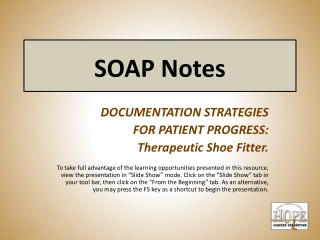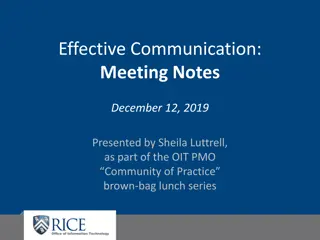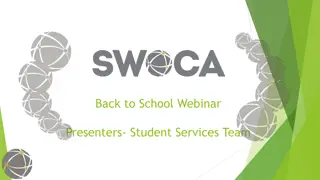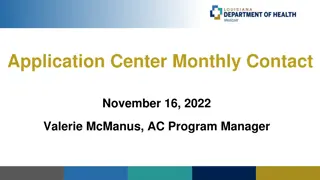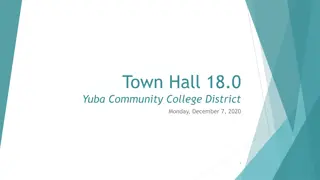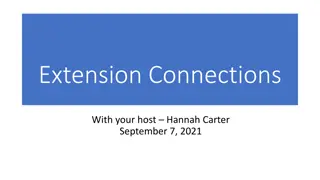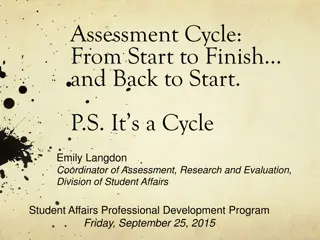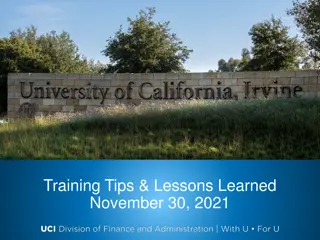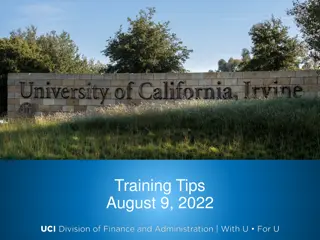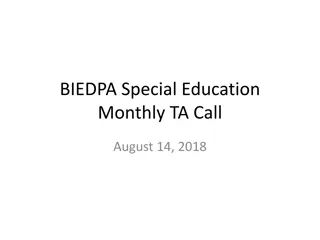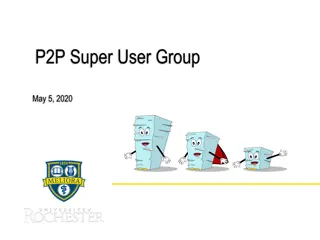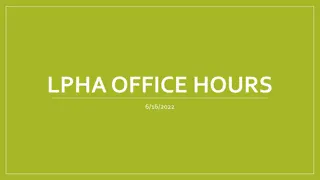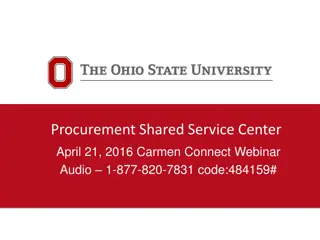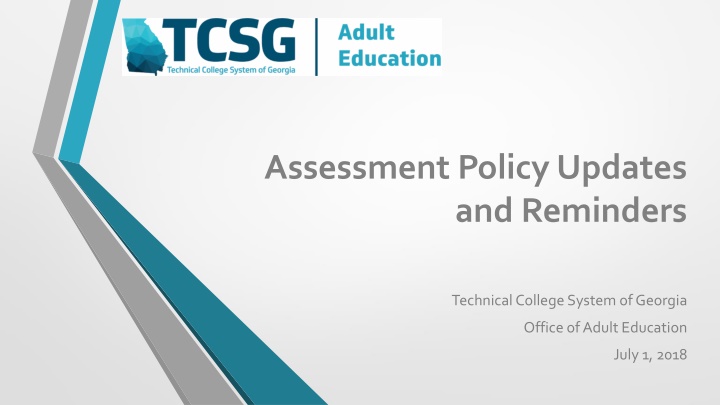
Effective Assessment Policy Updates for Adult Education Programs
Explore the latest assessment policy updates and reminders for adult education programs in the Technical College System of Georgia. Discover key components of quality test administration, policies, procedures, and practical guidance for addressing common assessment issues. Enhance your understanding of resources, testing environment setup, and administering assessments effectively.
Download Presentation

Please find below an Image/Link to download the presentation.
The content on the website is provided AS IS for your information and personal use only. It may not be sold, licensed, or shared on other websites without obtaining consent from the author. If you encounter any issues during the download, it is possible that the publisher has removed the file from their server.
You are allowed to download the files provided on this website for personal or commercial use, subject to the condition that they are used lawfully. All files are the property of their respective owners.
The content on the website is provided AS IS for your information and personal use only. It may not be sold, licensed, or shared on other websites without obtaining consent from the author.
E N D
Presentation Transcript
Assessment Policy Updates and Reminders Technical College System of Georgia Office of Adult Education July 1, 2018
Objectives Review the most important components of quality test administration Provide a reinforcement of policies and procedures Give practical guidance for common assessment issues 2
Overview of Resources OAE Adult Learner Assessment Policies and Procedures Manual Updated each fiscal year Required by our federal grant Test Publishers Training sessions, test manuals, student diagnostics, and technical assistance Local Assessment Training Local Assessment Experts 3
Setting the Testing Environment The testing environment should be clean, comfortable, and free of distractions. Gather all materials and set up the testing room. Post signs on doors or near the testing area. 4
Setting the Testing Environment Pre-testing and Post-testing environments must meet the same standards. Testing students in an active instructional classroom in not acceptable. Examine the assessment practices in your classroom or site (for both pre and post-testing) and work with program leadership to make changes, if needed. 5
Testing Environment Check-up 1. How would you rate the pre-testing environment in your classroom or site? 2. How would you rate the post-testing environment in your classroom or site? Rating Scale Excellent Good OK Fair Poor What changes would improve the pre- and post-testing environments in your classroom or site? 6
Administering Assessments Proctored by a trained test administrator Follow Test Publishers guidelines Always time an assessment according to testing guidelines Review all requests for Special Accommodations before the session TABE Online must be used for both pre and post testing 7
Documentation and Accommodations Students must submit documentation of disability, such as: Doctor s Report Certified Diagnostic Assessment Individual Education Plan (IEP) Other clinical records Accommodations may include, but are not limited to: Flexible scheduling and setting Flexible presentation and responding Assistive devices Each assessment provides guidance on acceptable accommodations. 8
Post-testing Timeframes Assessment Timeframe BEST Literacy After 60 hours of instruction BEST Plus 2.0 After 60 hours of instruction After 40 hours of instruction (ABE) After 30 hours of instruction (ASE) TABE 9&10, 11&12 TABE CLAS-E After 60 hours of instruction Starting in FY18, all assessments have a validity period of 270 calendar days. That s an increase from the prior 180-day rule. 9
Post-Testing Guidance from GPS Coordinators Post-testing After meeting minimums, programs can be somewhat flexible with post-testing times to meet student needs. Assessment helps students know where they stand and what skills they have yet to master. GPS Coordinators look to see if post-tests were given within 20 hours of meeting the minimum. Seek technical assistance if you have a group of students who accumulate hours very quickly. 10
Test Administration Check-up 3. How would you rate the quality of the timing of assessments in your classroom or site? 4. How would you rate your understanding of what to do if a student requests an assessment accommodation? Rating Scale Excellent Good OK Fair Poor What questions do you have about testing accommodations? 11
Scoring Assessments Follow the Test Publisher s Procedures Maintain the integrity of test results at all time Try to distance yourself from your students assessments For TABE, use TABE Online or SCOREZE answer sheets (scanned) Trade testing duties with another instructor (BEST Plus) Have another test administrator score the written responses or at least check your scoring (BEST Literacy and TABE CLAS-E) 12
Unethical Behavior in Student Assessment Changing student responses Explaining test items to students before, during, or after testing Testing before the student reaches the minimum number of hours Destroying or withholding assessments that aren t the results you want All student testing must be conducted in a fair and ethical manner. 13
Scoring and Ethics Check-up Rating Scale Excellent Good OK Fair Poor 5. How would you rate the accuracy and impartiality of the tests administered in your classroom or site? If you ever witnessed unethical behavior in assessment administration, what would you do? What kind of guidance has your program provided about how to report testing violations? 14
Maintenance of Assessment Records Keep all student assessment records in the Student Permanent Record No assessment records in the Student Work Folder Ensure that student recognition efforts still maintain confidentiality 15
Required Assessment Records Assessment Documentation BEST Literacy Test book and scoring sheet BEST Plus 2.0 Score report TABE 9&10, 11&12 (online) Score report, (Locator report made available upon request) TABE 9&10, 11&12 (print-based) Locator answer sheet*, test answer sheet and score report TABE CLAS-E Locator answer sheet, answer book, writing folio, score report *Both TABE Locator 7&8 and 9&10 are acceptable. 16
Assessments in GALIS Student assessment results must be entered into GALIS within 10 business days. GALIS must be a reflection of actual student activity; Ex. Test administration date should be the actual administration date. Record all assessments in GALIS, unless there is a reason that is explicitly allowed by the assessment policy manual. Record all assessment scores in the student record and GALIS whether they go up, go down, or remain the same. Record all subject area scores administered (TABE). 17
Test Security Testing Materials Keep all testing materials in locked storage. Don t put testing materials in Student Work Folders. Don t leave testing materials sitting out, including the teacher s desk. 18
Test Security Proctoring Take the task of proctoring assessments seriously. Watch for cheating or the use of devices, such as electronic dictionaries or phones. Refrain from assisting students during a test. Don t review missed problems with students after the assessment. 19
Test Security Check-up 6. How would you rate the maintenance of assessment records in your classroom or site? Rating Scale Excellent Good OK Fair Poor 7. How would you rate the test security in your classroom or site? What changes would improve record-keeping or test security in your classroom or site? 20
Annual Training Required for all test administrators Assessment Training Ideas: Local testing procedures, test publishers training materials, test security protocols, testing issues and solutions to those issues BEST Plus: Scoring Refresher training (offered by OAE), testing observations and peer critiques BEST Literacy: Local scoring calibration activity 21
Office of Adult Education Instructional Services Director Bobby Creech bcreech@tcsg.edu 404-679-1641 North Georgia Metro Atlanta Grant Program Support Coordinator April Barkley abarkley@tcsg.edu 404-679-1358 Grant Program Support Coordinator Leatricia Williams lwilliams@tcsg.edu 404-679-5234 Central/Western Georgia Grant Program Support Coordinator Felicia Phelps fphelps@tcsg.edu 404-679-5829 Southern/Eastern Georgia Grant Program Support Coordinator Charita Boles cboles@tcsg.edu 404-679-1628 Instructional Services Technical Coordinator Kimberlee Bryant kbryant@tcsg.edu 404-248-1060 Instructional Services Administrative Assistant Jamie Albee jalbee@tcsg.edu 404-679-1648 GALIS Helpdesk datacenter@tcsg.edu 22

